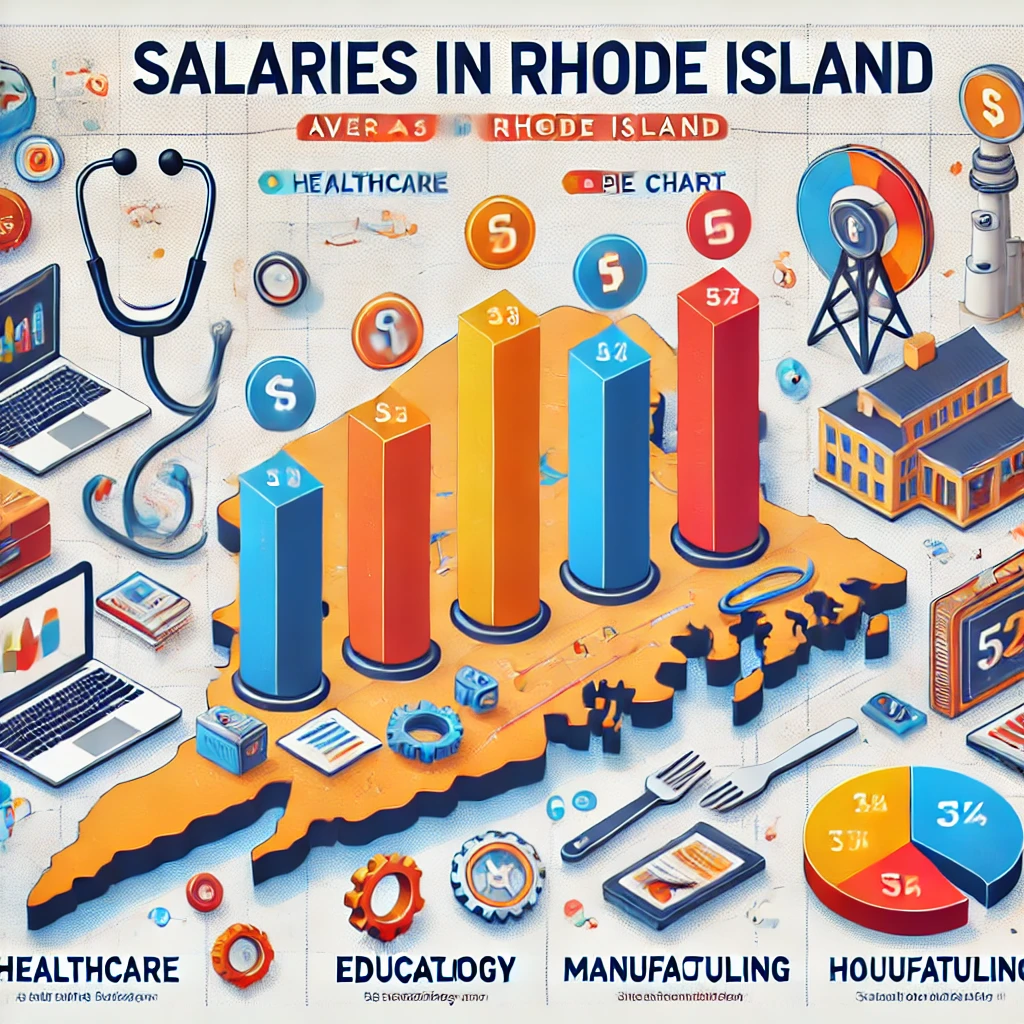Rhode Island, the smallest state in the United States by area, boasts a dynamic economy that offers a wide range of employment opportunities across various industries. Despite its size, Rhode Island’s economic landscape is diverse, encompassing sectors like healthcare, education, technology, manufacturing, and tourism. Understanding the salary trends in the state is essential for job seekers, employers, and policymakers alike.
General Salary Trends
The median household income in Rhode Island was approximately $75,000 in recent years, slightly above the national average. The state’s salaries reflect a balance between high-paying professional roles and lower-paying service-oriented jobs. Urban centers like Providence and Newport typically offer higher salaries due to the concentration of industries and a higher cost of living.
Salaries by Industry
- Healthcare and Social Assistance
- The healthcare sector is the largest employer in Rhode Island, driven by institutions like Lifespan and Care New England.
- Average salaries:
- Physicians: $220,000–$280,000 annually.
- Registered Nurses (RNs): $75,000–$90,000 annually.
- Medical Assistants: $35,000–$45,000 annually.
- Education Services
- Education is another cornerstone of Rhode Island’s economy, with institutions like Brown University, the University of Rhode Island, and Providence College playing pivotal roles.
- Average salaries:
- Postsecondary Professors: $80,000–$120,000 annually.
- K-12 Teachers: $50,000–$75,000 annually.
- Education Administrators: $90,000–$130,000 annually.
- Technology
- Rhode Island is emerging as a tech hub, supported by initiatives to attract startups and tech companies.
- Average salaries:
- Software Engineers: $95,000–$130,000 annually.
- Data Analysts: $70,000–$100,000 annually.
- IT Support Specialists: $50,000–$65,000 annually.
- Manufacturing
- Manufacturing, particularly in advanced sectors like marine products and biopharmaceuticals, remains a key part of Rhode Island’s economy.
- Average salaries:
- Skilled Tradespeople: $40,000–$60,000 annually.
- Production Managers: $75,000–$110,000 annually.
- Assembly Line Workers: $30,000–$45,000 annually.
- Tourism and Hospitality
- As a popular tourist destination, Rhode Island’s hospitality industry employs a significant portion of the workforce.
- Average salaries:
- Hotel Managers: $50,000–$80,000 annually.
- Chefs: $40,000–$70,000 annually.
- Waitstaff: $25,000–$35,000 annually (including tips).
Cost of Living and Salary Adjustments
The cost of living in Rhode Island is higher than the national average, driven primarily by housing costs. For instance, median home prices in the state are approximately $400,000, which is higher than in many other states. Rent for a one-bedroom apartment in urban areas like Providence averages around $1,500 per month.
To attract and retain talent, many employers in Rhode Island offer competitive salaries complemented by benefits such as health insurance, retirement plans, and remote work options. These perks are particularly common in high-demand industries like healthcare and technology.
Gender Pay Gap
Like many states, Rhode Island faces challenges related to the gender pay gap. On average, women in the state earn approximately 85 cents for every dollar earned by men. Efforts to close this gap include state legislation promoting pay transparency and employer-led diversity initiatives.
Future Trends
Several factors are likely to influence salary trends in Rhode Island in the coming years:
- Economic Diversification: The state’s focus on sectors like renewable energy, biotech, and advanced manufacturing may lead to higher wages in these industries.
- Remote Work: The growing prevalence of remote work may allow residents to earn salaries competitive with larger metropolitan areas without leaving Rhode Island.
- Workforce Development: State initiatives aimed at upskilling workers, such as free community college programs, could lead to better-paying jobs.
Conclusion
Salaries in Rhode Island reflect a complex interplay of industry demands, cost of living, and workforce characteristics. While the state offers competitive wages in sectors like healthcare, education, and technology, challenges such as the gender pay gap and high housing costs remain. By focusing on economic diversification and workforce development, Rhode Island is well-positioned to enhance its economic prosperity and improve salary outcomes for its residents.




